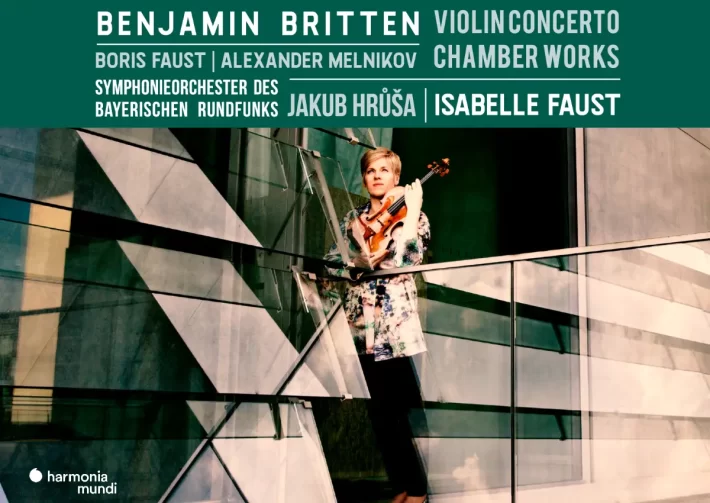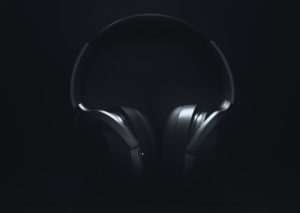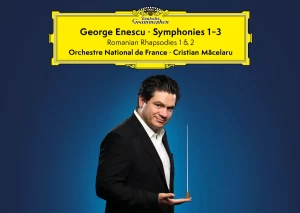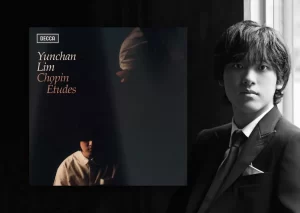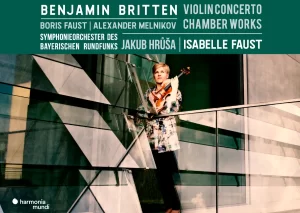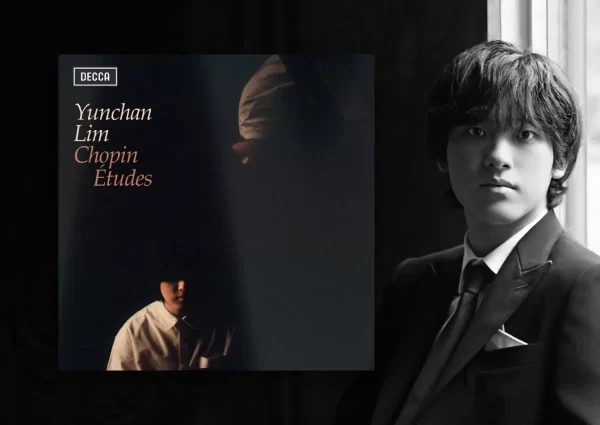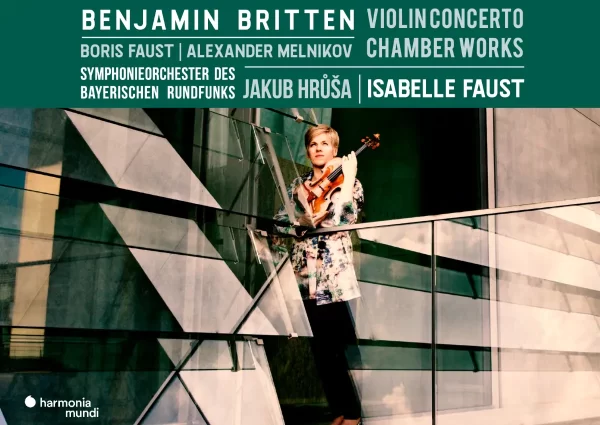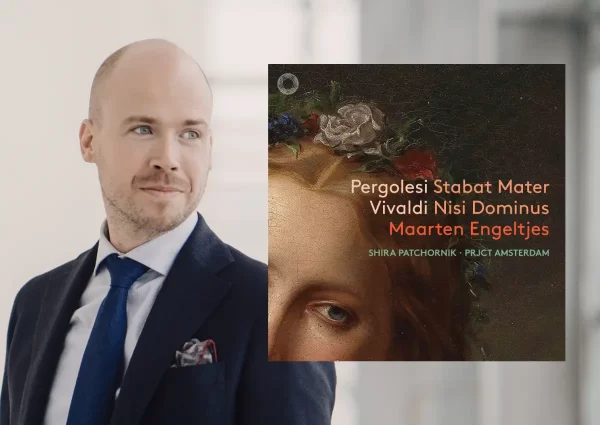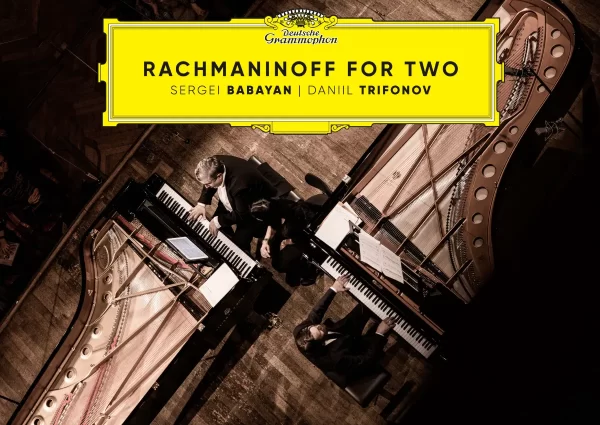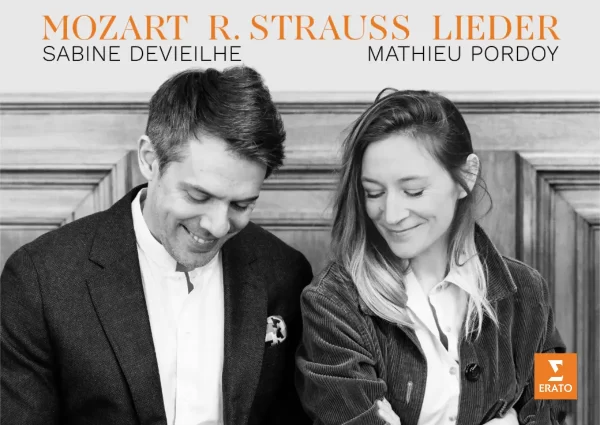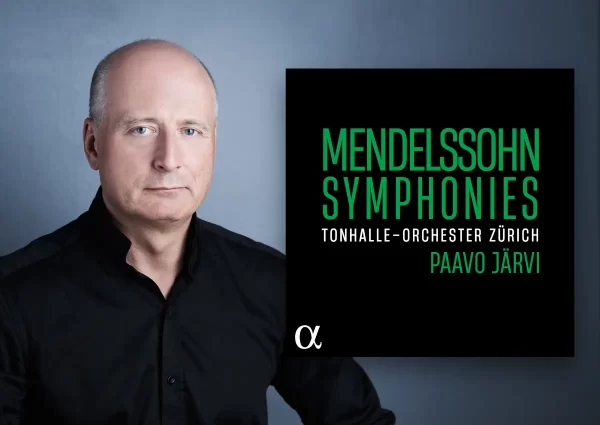Britten was in North America when he completed his Violin Concerto in September 1939. Despite its auspicious 1940 premiere at Carnegie Hall, the work never proved to be one of Britten’s more popular works during his lifetime, despite his own excellent 1971 Decca recording featuring the Russian violinist, Mark Lubotsky. Yet over the last two decades its fortunes have changed, with almost 20 new recordings by the finest violinists of this generation, among them James Ehnes (Onyx), Vilde Frang (Warner Classics), Frank Peter Zimmermann (Sony), and Janine Jensen (Decca). While it has still not entered the standard repertoire, this current crop of violinists clearly sees the concerto as challenging and worthy music.
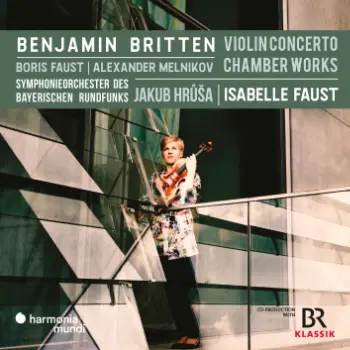
Check offers of this album on Amazon.
Britten wrote the concerto, at least in part, inspired by his enthusiasm for Berg’s concerto, which he had heard two years earlier. The concerto (as well as “Reveille” and “Suite for violin and piano,” both included here) was written for Antonio Brosa (who was part of that 1940 premiere), a Spanish-born violinist living in London since 1914. Faust’s recording of the Berg concerto is one of my prime recommendations, so I was keen to hear her in Britten’s work.
The concerto opens with a distinctive rhythmic figure played by the timpani – the figure is repeatedly heard throughout the movement. Hrůša and the Bavarian RSO play with tremendous flair – I was consistently taken with their thoroughly idiomatic accompaniment. Faust shapes the opening material beautifully, but what really impresses is her total connection to the writing. The ardency of her playing immediately draws us in, holding us fast. Intonation is spot-on, her tone round and silvery even in the highest registers. And how wonderfully Hrůša draws out the kaleidoscopic hues of Britten’s orchestration.
The second movement is particularly ferocious, the militant music of the first movement now more taunting, answered by a more percussive violin line. This surely reflects the composer’s feelings about the Spanish Civil War and the simmering unrest in Europe, and this is a performance that fully embraces and evokes that horrible imagery, Faust’s playing of the Cadenza (roughly the final third of the movement) is a tour de force, played with astounding bravura and emotional rawness.
The final “Passacaglia” offers little respite, its theme introduced by the trombones, setting an ominous, forlorn mood. Hrůša and Faust are of one mind as the music progresses, taking us through its varying emotions as various sections of the orchestra interact with the soloist. As the music becomes increasingly contrapuntal, the solo violin becomes ever more virtuosic, though Faust’s deep connection to the music’s spirit ensures it is never virtuosity for its own sake. Just when it appears to reach a cathartic climax, the music instead collapses in on itself (9’32”), leaving the bottom voices to mutter fragments of the theme as the rest of the orchestra struggles towards a major ending. But the violin’s final trill leaves the ending tonality ambiguous (is this ambiguity – and the quiet ending – a reason the concerto has not had more success in the concert hall?). All of this is masterfully charted by Hrůša and Faust, leaving the listener emotionally spent.
The Reveille and Suite are quite wonderful, the harmonic language tough but approachable. As always, the technical challenges of “Reveille” sound easy in Faust’s hands, and she and pianist Alexander Melnikov capture the mood and character of each movement in the Suite. “Lullaby” (Mvt. III) is particularly haunting, exploring emotions that extend beyond that the title. It’s followed by an exhilarating waltz that at times threatens to lose its modest decorum.
This is the premiere recording of “Two Pieces for violin, viola and piano,” in which Melnikov and Faust are joined by her brother, Boris. It is fascinating to hear the 16-year-old Britten’s individual voice beginning to emerge. Harmonia Mundi’s recording is exceptionally fine, though in the concerto there were occasions where I wanted the violin more integrated into the overall sound. With excellent liner notes and ancillary materials, this release is warmly recommended.

Britten Violin Concerto – Recommended Comparisons
Frang | Jansen | Little | Vengerov

Check offers of this album on Amazon.
| Album Details | |
|---|---|
| Album name | Benjamin Britten – Violin Concerto, Chamber Works |
| Artist | Isabelle Faust – Violin |
| Artist | Symphonieorchester des Bayerischen Rundfunks |
| Artist | Jakub Hrůša – Conductor |
| Label | Harmonia Mundi |
| Catalogue No. | HMM902668 |
| Works | Britten – Violin Concerto, Reveille, Suite Op.6, Two Pieces for violin, viola and piano |
| Amazon Music link | Stream here |
| Apple Music link | Stream here |
| Additional artists | Boris Faust – Viola Alexander Melnikov – Piano |
Included with an Apple Music subscription:
Latest Classical Music Posts
Read more classical music reviews or visit The Classic Review Amazon store
Follow Us and Comment:
Get our periodic classical music newsletter with our recent reviews, news and beginners guides.
We respect your privacy.

